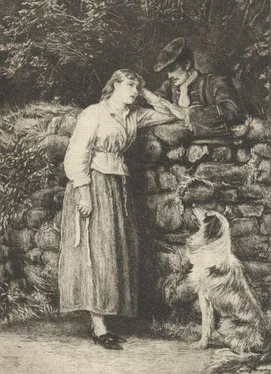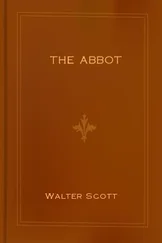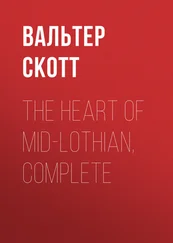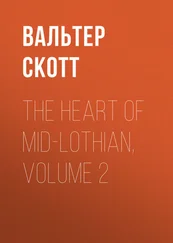Walter Scott - The Heart of Mid-Lothian
Здесь есть возможность читать онлайн «Walter Scott - The Heart of Mid-Lothian» весь текст электронной книги совершенно бесплатно (целиком полную версию без сокращений). В некоторых случаях можно слушать аудио, скачать через торрент в формате fb2 и присутствует краткое содержание. Год выпуска: 2004, Жанр: Исторические приключения, на английском языке. Описание произведения, (предисловие) а так же отзывы посетителей доступны на портале библиотеки ЛибКат.
- Название:The Heart of Mid-Lothian
- Автор:
- Жанр:
- Год:2004
- ISBN:нет данных
- Рейтинг книги:3 / 5. Голосов: 1
-
Избранное:Добавить в избранное
- Отзывы:
-
Ваша оценка:
- 60
- 1
- 2
- 3
- 4
- 5
The Heart of Mid-Lothian: краткое содержание, описание и аннотация
Предлагаем к чтению аннотацию, описание, краткое содержание или предисловие (зависит от того, что написал сам автор книги «The Heart of Mid-Lothian»). Если вы не нашли необходимую информацию о книге — напишите в комментариях, мы постараемся отыскать её.
The Heart of Mid-Lothian — читать онлайн бесплатно полную книгу (весь текст) целиком
Ниже представлен текст книги, разбитый по страницам. Система сохранения места последней прочитанной страницы, позволяет с удобством читать онлайн бесплатно книгу «The Heart of Mid-Lothian», без необходимости каждый раз заново искать на чём Вы остановились. Поставьте закладку, и сможете в любой момент перейти на страницу, на которой закончили чтение.
Интервал:
Закладка:
I have been disappointed, however, in obtaining the evidence on which this story rests. The present proprietor of the estate on which the old man died (a particular friend of the author) undertook to question the son of the deceased on the subject. This person follows his father's trade, and holds the employment of carpenter to the same family. He admits that his father's going abroad at the time of the Porteous Mob was popularly attributed to his having been concerned in that affair; but adds that, so far as is known to him, the old man had never made any confession to that effect; and, on the contrary, had uniformly denied being present. My kind friend, therefore, had recourse to a person from whom he had formerly heard the story; but who, either from respect to an old friend's memory, or from failure of his own, happened to have forgotten that ever such a communication was made. So my obliging correspondent (who is a fox-hunter) wrote to me that he was completely planted; and all that can be said with respect to the tradition is, that it certainly once existed, and was generally believed.
[ N.B. —The Rev. Dr. Carlyle, minister of Inveresk, in his Autobiography, gives some interesting particulars relating to the Porteous Mob, from personal recollections. He happened to be present in the Tolbooth Church when Robertson made his escape, and also at the execution of Wilson in the Grassmarket, when Captain Porteous fired upon the mob, and several persons were killed. Edinburgh 1860, 8vo, pp. 30-42.]
NOTE E.—CARSPHARN JOHN.
John Semple, called Carspharn John, because minister of the parish in Galloway so called, was a Presbyterian clergyman of singular piety and great zeal, of whom Patrick Walker records the following passage: "That night after his wife died, he spent the whole ensuing night in prayer and meditation in his garden. The next morning, one of his elders coming to see him, and lamenting his great loss and want of rest, he replied,—'I declare I have not, all night, had one thought of the death of my wife, I have been so taken up in meditating on heavenly things. I have been this night on the banks of Ulai, plucking an apple here and there.'"— Walker's Remarkable Passages of the Life and Death of Mr. John Semple.
NOTE F.—PETER WALKER.
This personage, whom it would be base ingratitude in the author to pass over without some notice, was by far the most zealous and faithful collector and recorder of the actions and opinions of the Cameronians. He resided, while stationary, at the Bristo Port of Edinburgh, but was by trade an itinerant merchant, or pedlar, which profession he seems to have exercised in Ireland as well as Britain. He composed biographical notices of Alexander Peden, John Semple, John Welwood, and Richard Cameron, all ministers of the Cameronian persuasion, to which the last mentioned member gave the name.
It is from such tracts as these, written in the sense, feeling, and spirit of the sect, and not from the sophisticated narratives of a later period, that the real character of the persecuted class is to be gathered. Walker writes with a simplicity which sometimes slides into the burlesque, and sometimes attains a tone of simple pathos, but always expressing the most daring confidence in his own correctness of creed and sentiments, sometimes with narrow-minded and disgusting bigotry. His turn for the marvellous was that of his time and sect; but there is little room to doubt his veracity concerning whatever he quotes on his own knowledge. His small tracts now bring a very high price, especially the earlier and authentic editions. The tirade against dancing, pronounced by David Deans, is, as intimated in the text, partly borrowed from Peter Walker. He notices, as a foul reproach upon the name of Richard Cameron, that his memory was vituperated, "by pipers and fiddlers playing the Cameronian march—carnal vain springs, which too many professors of religion dance to; a practice unbecoming the professors of Christianity to dance to any spring, but somewhat more to this. Whatever," he proceeds, "be the many foul blots recorded of the saints in Scripture, none of them is charged with this regular fit of distraction. We find it has been practised by the wicked and profane, as the dancing at that brutish, base action of the calf-making; and it had been good for that unhappy lass, who danced off the head of John the Baptist, that she had been born a cripple, and never drawn a limb to her. Historians say, that her sin was written upon her judgment, who some time thereafter was dancing upon the ice, and it broke, and snapt the head off her; her head danced above, and her feet beneath. There is ground to think and conclude, that when the world's wickedness was great, dancing at their marriages was practised; but when the heavens above, and the earth beneath, were let loose upon them with that overflowing flood, their mirth was soon staid; and when the Lord in holy justice rained fire and brimstone from heaven upon that wicked people and city Sodom, enjoying fulness of bread and idleness, their fiddle-strings and hands went all in a flame; and the whole people in thirty miles of length, and ten of breadth, as historians say, were all made to fry in their skins and at the end, whoever are giving in marriages and dancing when all will go in a flame, they will quickly change their note.
"I have often wondered thorow my life, how any that ever knew what it was to bow a knee in earnest to pray, durst crook a hough to fyke and fling at a piper's and fiddler's springs. I bless the Lord that ordered my lot so in my dancing days, that made the fear of the bloody rope and bullets to my neck and head, the pain of boots, thumikens, and irons, cold and hunger, wetness and weariness, to stop the lightness of my head, and the wantonness of my feet. What the never-to-be-forgotten Man of God, John Knox, said to Queen Mary, when she gave him that sharp challenge, which would strike our mean-spirited, tongue-tacked ministers dumb, for his giving public faithful warning of the danger of the church and nation, through her marrying the Dauphine of France, when he left her bubbling and greeting, and came to an outer court, where her Lady Maries were fyking and dancing, he said, 'O brave ladies, a brave world, if it would last, and heaven at the hinder end! But fye upon the knave Death, that will seize upon those bodies of yours; and where will all your fiddling and flinging be then?' Dancing being such a common evil, especially amongst young professors, that all the lovers of the Lord should hate, has caused me to insist the more upon it, especially that foolish spring the Cameronian march!"— Life and Death of Three Famous Worthies, etc., collected and printed for Patrick Walker, Edin. 1727, 12mo, p. 59.
It may be here observed, that some of the milder class of Cameronians made a distinction between the two sexes dancing separately, and allowed of it as a healthy and not unlawful exercise; but when men and women mingled in sport, it was then called promiscuous dancing, and considered as a scandalous enormity.
NOTE G.—MUSCHAT'S CAIRN.
Nichol Muschat, a debauched and profligate wretch, having conceived a hatred against his wife, entered into a conspiracy with another brutal libertine and gambler, named Campbell of Burnbank (repeatedly mentioned in Pennycuick's satirical poems of the time), by which Campbell undertook to destroy the woman's character, so as to enable Muschat, on false pretences to obtain a divorce from her. The brutal devices to which these worthy accomplices resorted for that purpose having failed, they endeavoured to destroy her by administering medicine of a dangerous kind, and in extraordinary quantities.
Читать дальшеИнтервал:
Закладка:
Похожие книги на «The Heart of Mid-Lothian»
Представляем Вашему вниманию похожие книги на «The Heart of Mid-Lothian» списком для выбора. Мы отобрали схожую по названию и смыслу литературу в надежде предоставить читателям больше вариантов отыскать новые, интересные, ещё непрочитанные произведения.
Обсуждение, отзывы о книге «The Heart of Mid-Lothian» и просто собственные мнения читателей. Оставьте ваши комментарии, напишите, что Вы думаете о произведении, его смысле или главных героях. Укажите что конкретно понравилось, а что нет, и почему Вы так считаете.








